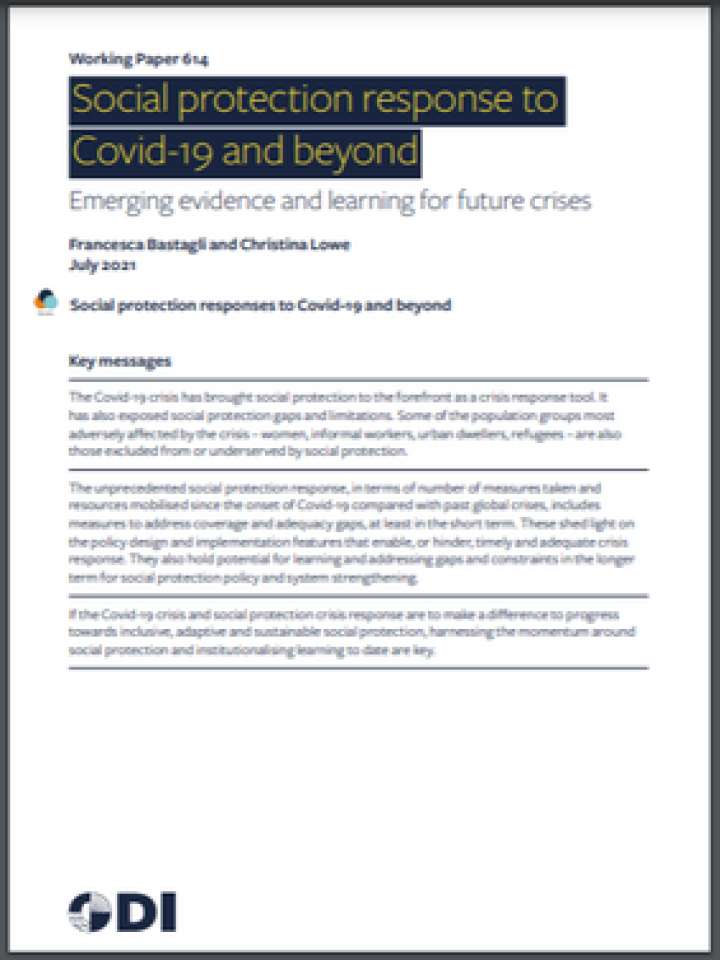Social protection response to Covid-19 and beyond: Emerging evidence and learning for future crises
This paper aims to promote learning emerging from the early policy response to the Covid-19 crisis on social protection crisis response effectiveness and on opportunities and risks for longer-term social protection strengthening. It centres on the experience of low- and middle-income countries and on measures taken in the initial phases of the crisis, between the declaration of the pandemic, in March 2020, and early 2021. Moreover, it focuses on measures explicitly aiming to extend or step up provision to four population groups particularly adversely affected by the crisis and commonly excluded from (or underserved by) social protection – informal workers, women, urban dwellers and refugees – and on two crosscutting themes: operations and financing.
This paper has a number of key messages, including:
- The Covid-19 crisis has brought social protection to the forefront as a crisis response tool. It has also exposed social protection gaps and limitations.
- The unprecedented social protection response, in terms of number of measures taken and resources mobilised since the onset of Covid-19 compared with past global crises, includes measures to address coverage and adequacy gaps, at least in the short term.
- If the Covid-19 crisis and social protection crisis response are to make a difference to progress towards inclusive, adaptive and sustainable social protection, harnessing the momentum around social protection and institutionalising learning to date are key.
Explore further
